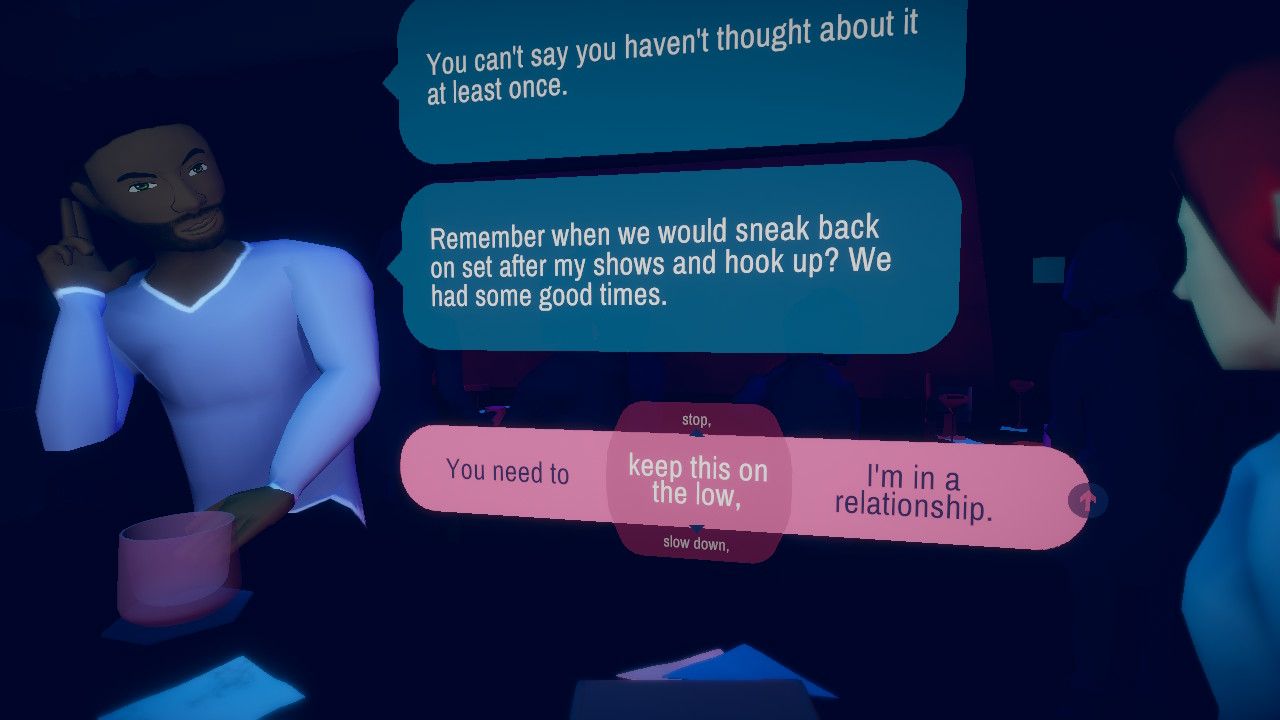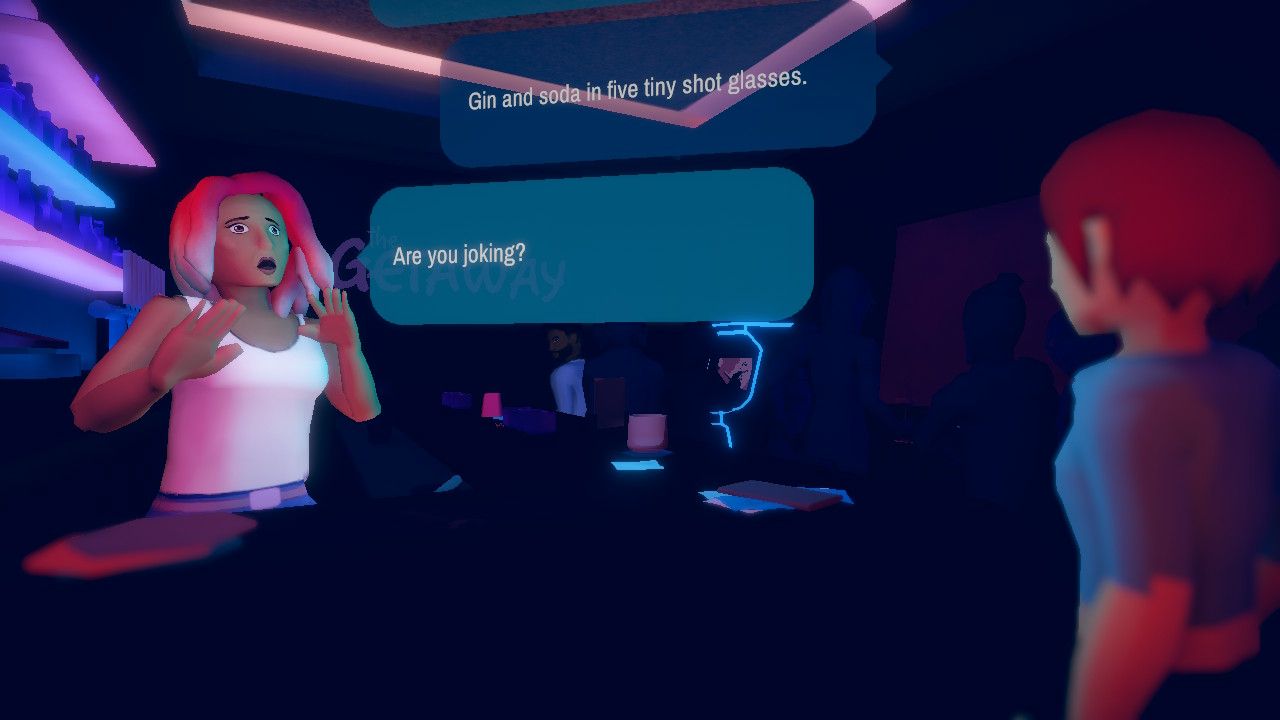
It’s great fun to see how the visual novel remains a vibrant genre, whether it’s with straightforward cinematic storytelling or experimental, highly-inclusive experiences that better explore the nuances of romance. The new multi-platform game We Should Talk definitely falls under the latter category, developed and incubated by the NYU Game Center, and features the type of unprecedented mechanic that may find itself worming into more games in the future. In this sense, it’s a forward-thinking and worthy game to check out, though a few design elements get in the way of its repeat-play structure.
We Should Talk’s main character is an unnamed woman out for a spell at her favorite local watering hole. While she casually wets her whistle, her devoted girlfriend is cooking dinner at home coyly texting sweet nothings to her that eventually escalate into a more serious, probably overdue conversation. The evening progresses as a select few characters emerge from the dim neon haze game aesthetic, including a lecherous young barfly and a randy ex-boyfriend, all of whom can become targets of flirtation (and more) or summarily sent packing.
The main twist in We Should Talk is its curious dialogue mechanic, which allows players to construct responses out of two to three parts of a given sentence. Spending time playing with all the pieces of a reply is an interesting diversion, and certain responses completely transform nuance and intent, depending on the pronoun used or the conclusion; this is the type of feature that will definitely hook a few English majors all on its own. Rebuffing an ex by telling them they should “keep this on the low” instead of “stop” is naturally going to send a different message.

Of course, this is all just 1s and 0s - and an indie project, at that - so We Should Talk’s scope makes itself apparent after even just a single playthrough. Each “run” of the game takes about 20 or 30 minutes, and presents a highly similar structure each time, with the only differentiation being the responses chosen. Unfortunately, even at the fastest text speed setting, this means that unlocking all nine endings requires sitting through familiar conversations ad nauseam. Any kind of functional “skip” feature would have been welcome, but would probably reduce the total playtime needed to 100% We Should Talk as well.
Screenshots may imply that the game features an explorable 3D bar environment, but this is certainly not the case. There’s very little in the way of character animation as well, and only the barest minimum in the way of character art. It’s clear that these aspects weren’t a development priority, which is just fine, but the 3D-rendered art could have been replaced with a more characterful 2D style and this might have better suited the simulation, rather than be an occasional eyesore.

While there is no spoken audio, there is a constant running sequence of chilled-out nightclub music, which does add to the ambience considerably. The writing itself does the heaviest lifting, and it’s generally excellent and uncomfortably relatable, and this carries the experience. Sometimes certain VN games are preoccupied with containing numerous yet flat archetypes, but most characters here demonstrate some additional depth, even though the game's inherent brevity prevents a deep dive into any one thread. The girlfriend at home’s texts vary between sincerity, humor, confusion, and hurt at the distance she can intuit, and it’s successfully heartbreaking to send her dismissive or outright nasty texts in pursuit of alternate endings.

We Should Talk is ultimately a success, despite a few less-than-appealing aesthetic choices. Its reply-construction adds meaningful and thoughtful pause to a mechanic which is normally rushed through in other VN games, and here’s hoping that it will be adapted to future examples in the genre. Playing through all nine stories is a hefty ask, though the overall brevity makes it the perfect game to spend a quiet session with once a week. Furthermore, it tells an inclusive and relatable story that will have players thinking back to their own thoughtless replies, sent or received, or recalling the painful and muddled distance grown at the tail end of romance. Outside of its reply system, We Should Talk’s strongest feature is its prompt for insight.
We Should Talk is out now on PC, Nintendo Switch, PlayStation 4, and Xbox One for $6.99. A digital Nintendo Switch code was provided to Screen Rant for purposes of review.
from ScreenRant - Feed https://ift.tt/2X01FKn
via IFTTT







0 comments:
Post a Comment